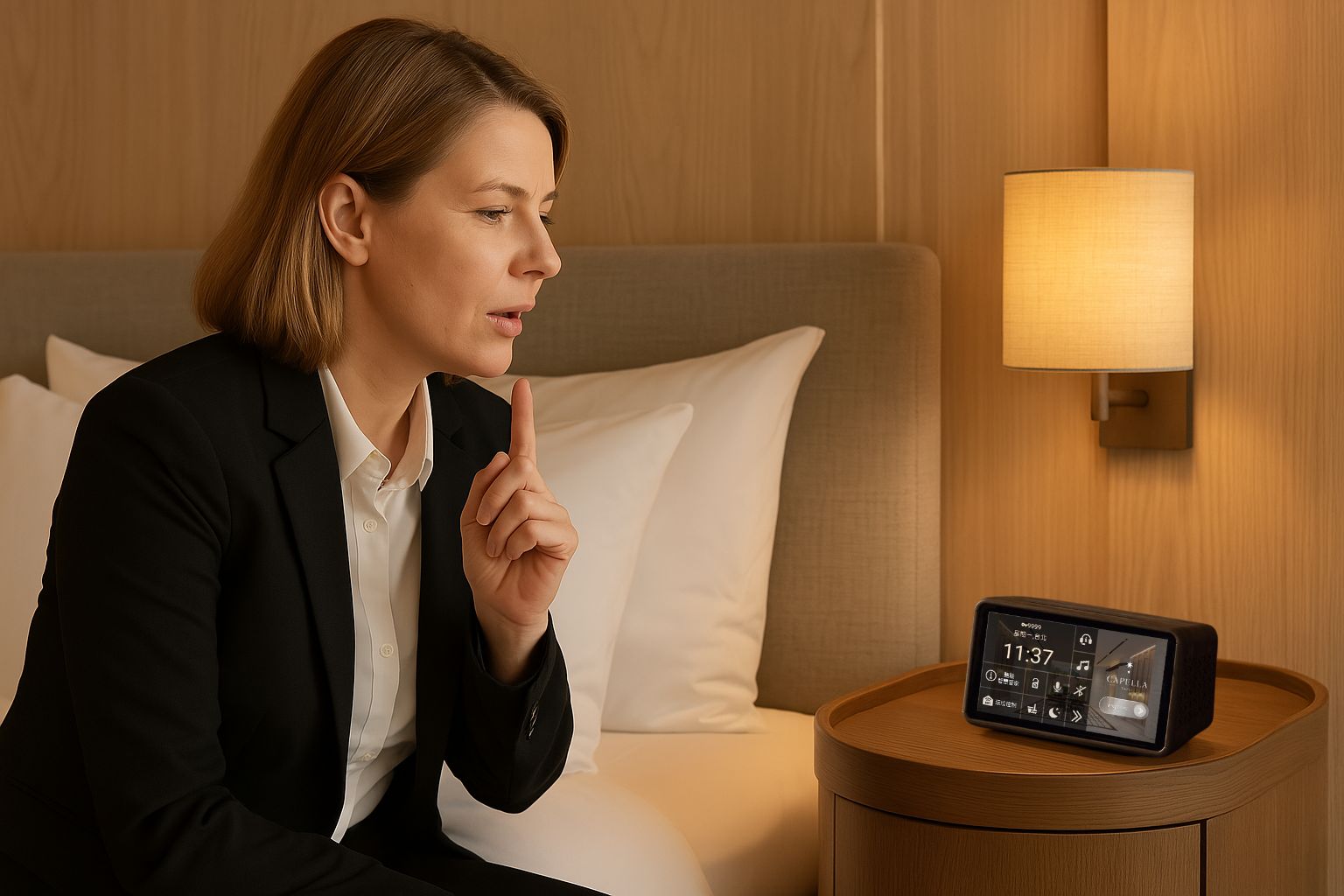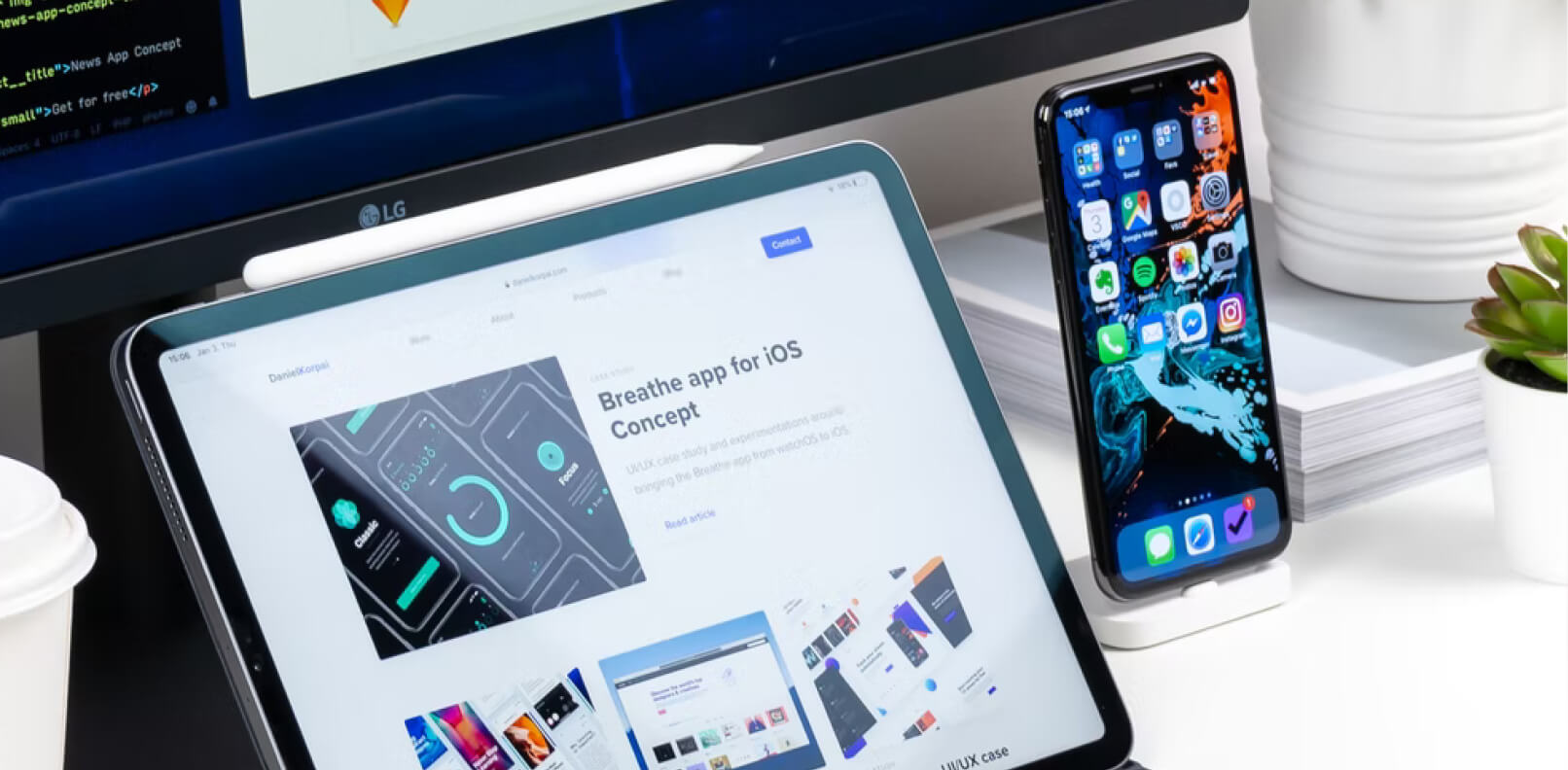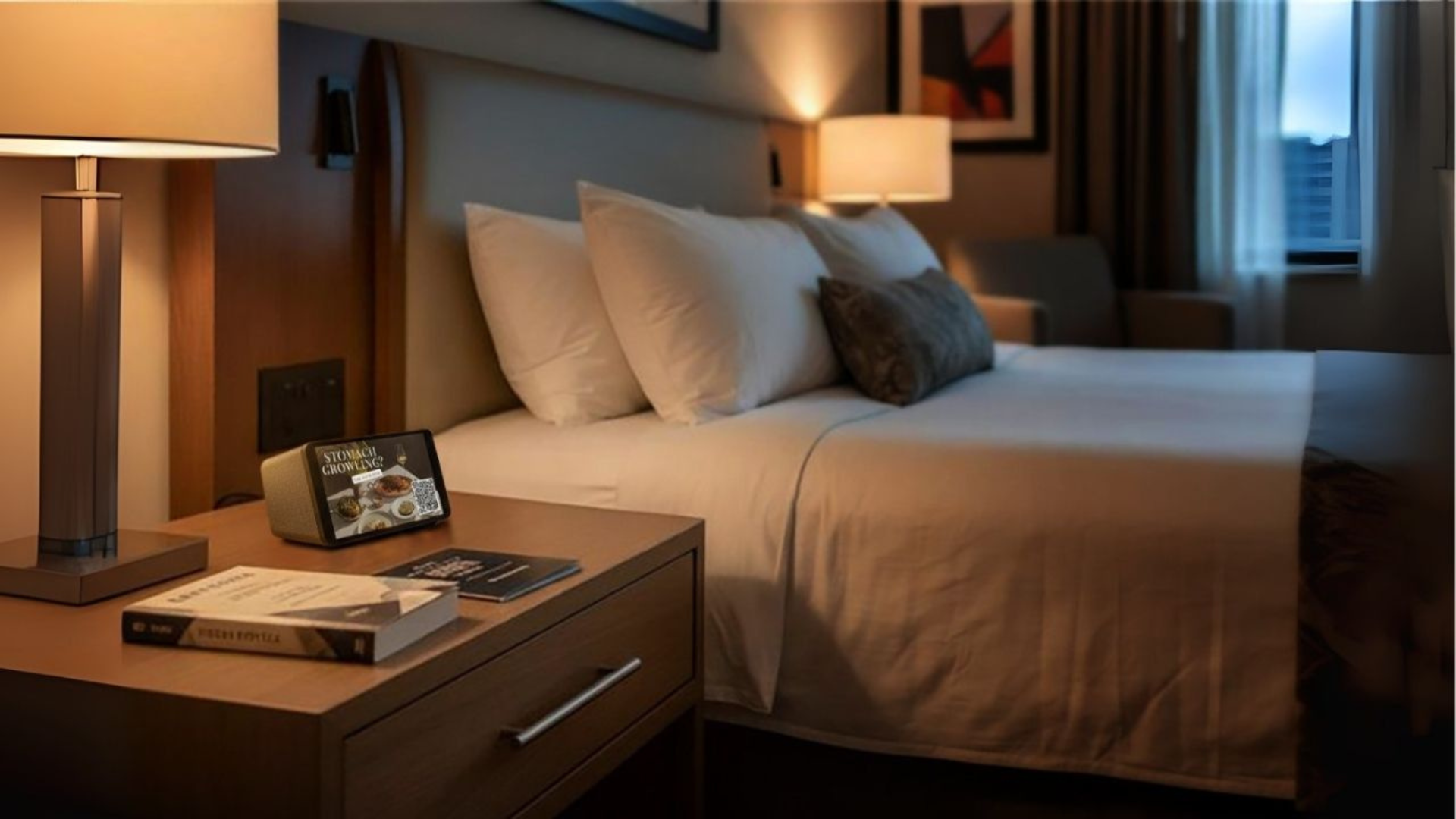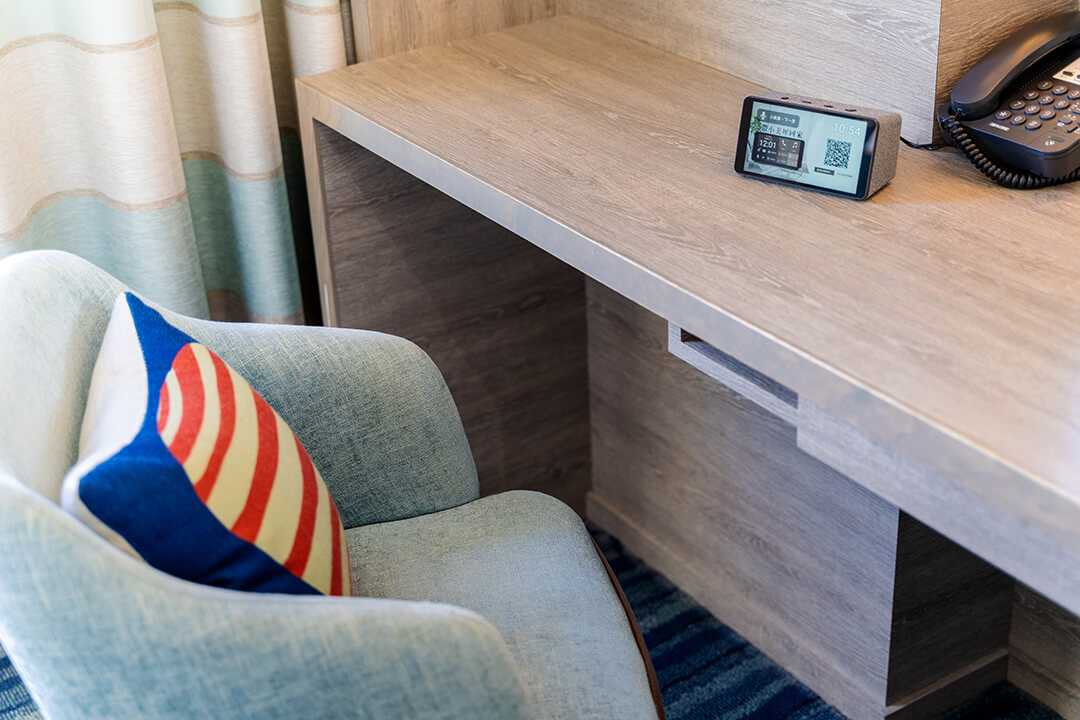AI-powered voice assistants are transforming guest experiences by acting as 24/7 in-room concierges—capable of answering repetitive guest questions, automating service requests, and communicating fluently in multiple languages.
This helps reduce front desk call volume, ease the burden of staff training, and address ongoing labor challenges. Guests enjoy faster, more satisfying service, while hotels benefit from streamlined operations and increased revenue through automated upselling that fits naturally into conversations.
When choosing an AI voice assistant, it’s easy to assume they’re all the same—but consumer and enterprise solutions serve very different purposes in hospitality.
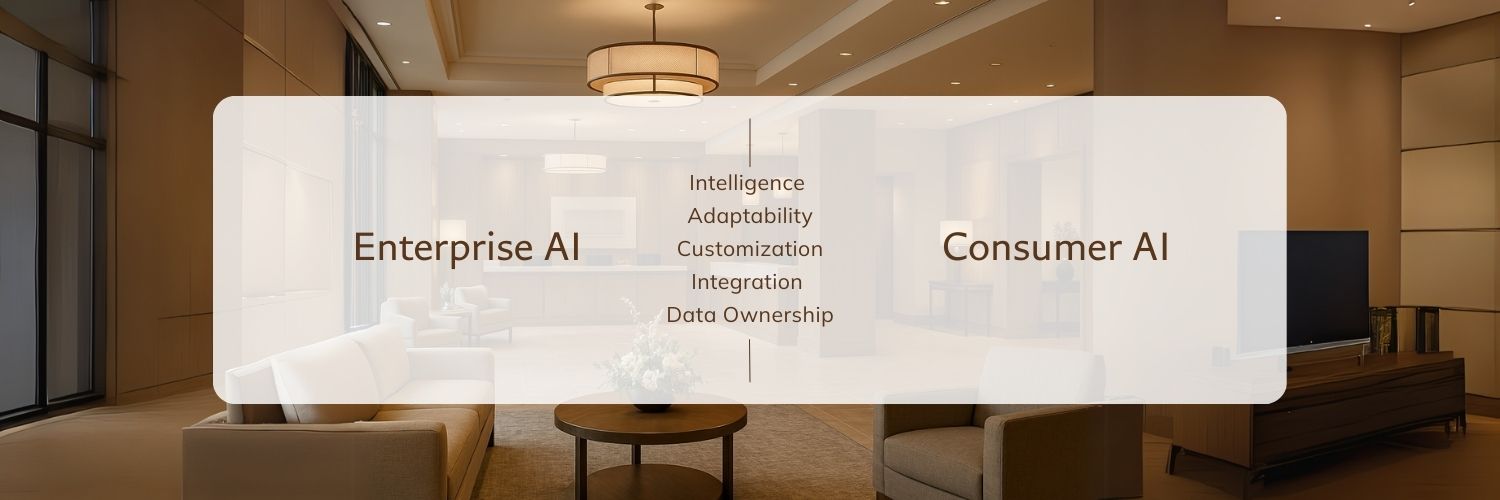
1. Intelligence: Hospitality-Specific AI vs. Basic Answers
Enterprise-grade AI voice assistants are purpose-built for hospitality. They combine large language models (LLMs) to handle open-ended guest questions—such as planning a weekend itinerary—with small language models (SLM) for quick, command-based tasks. This hybrid setup enables both natural conversation and fast responses, making it ideal for hotel environments.
On the other hand, consumer-grade voice assistants are designed for simple, predefined tasks like playing music, checking the weather, or turning on lights. While convenient in a home setting, they lack the depth, adaptability, and integration capabilities needed for professional guest service.
2. Adaptability: Retrainable Intelligence vs. Static Plugins
Enterprise-grade systems are continuously refined. Each guest interaction contributes to improving the assistant’s performance, ensuring responses stay relevant, accurate, and aligned with your brand. This retraining capability turns AI into a learning system—one that evolves with your property’s needs.
Consumer tools, on the other hand, are often limited by their “one-size-fits-all” nature. Since they’re not built to adapt to each hotel's unique environment, they can’t be retrained or personalized beyond basic settings.
3. Customization: Tailored vs. One-Size-Fits-All
Enterprise-grade AI voice assistants are built to reflect your brand’s identity. From UI buttons and FAQ content to even the tone of chit-chat responses, everything can be customized to align with your property’s style and guest expectations.
In contrast, consumer-grade solutions offer almost no customization. The interface, settings, and even basic labels remain fixed, with limited ability to adapt to the hospitality environment or your branding needs.
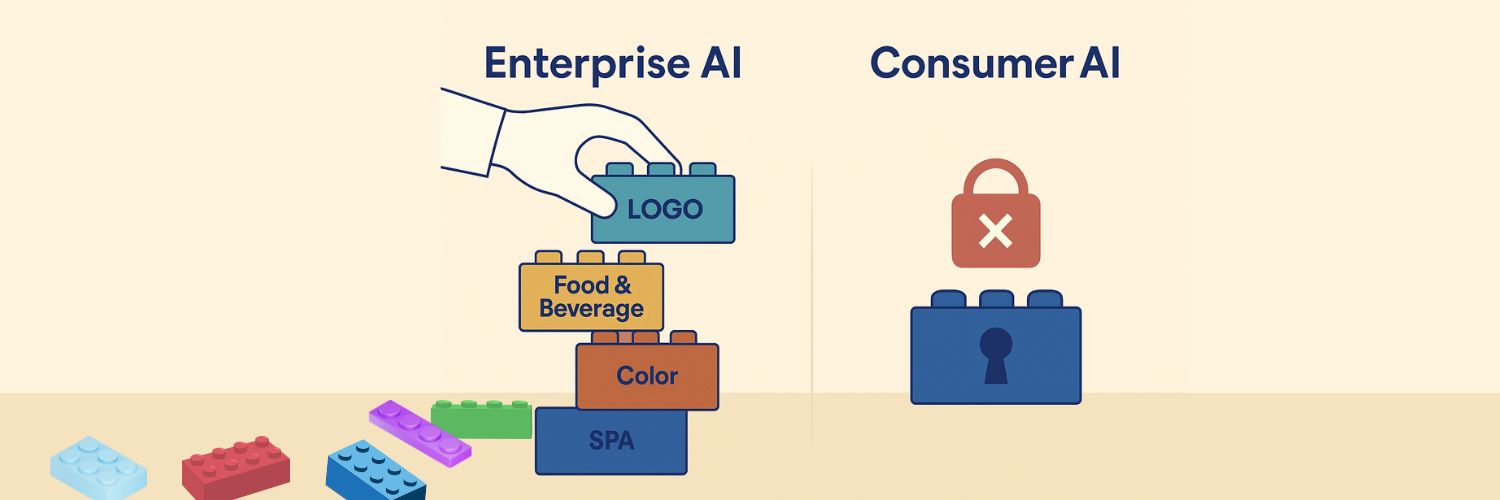
4. Integration: Built-In Connectivity vs. Limited Reach
Enterprise AI is designed for deep integration across hotel systems—from PMS and CRM to task management and service automation platforms. It acts as a connected hub that supports the entire guest journey, before, during, and after the stay.
On the other hand, consumer-grade tools typically rely on a limited API and are optimized for smart home use, not hospitality operations. Their ability to plug into professional hotel workflows is minimal at best.
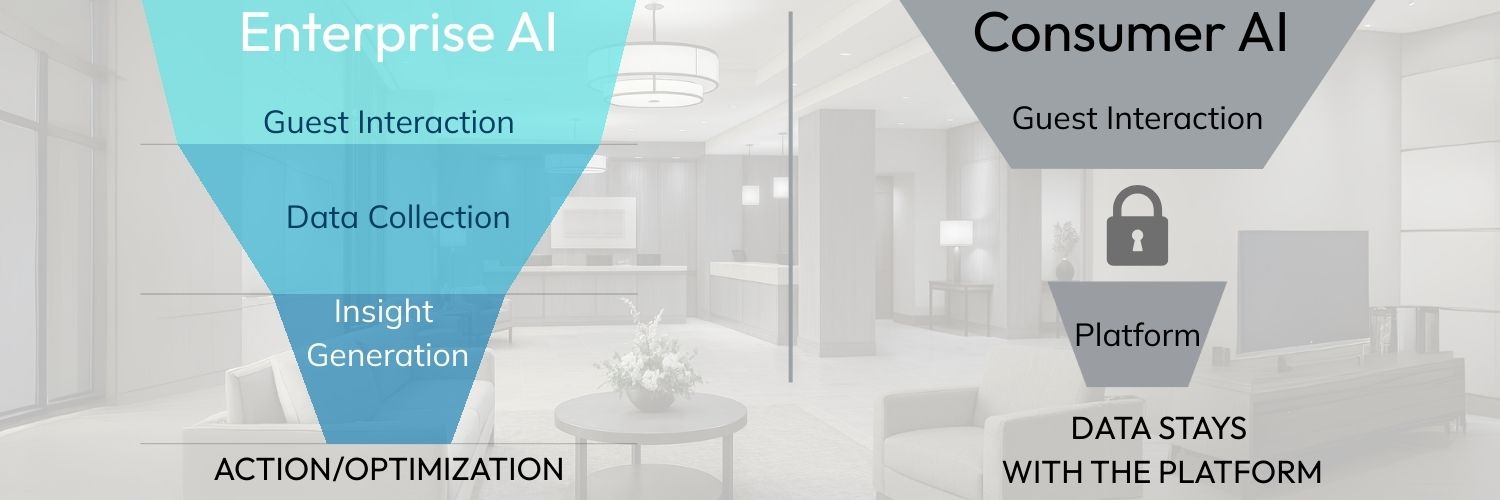
5. Data Ownership: Full Access vs. Walled-Off Insights
Enterprise-grade AI solutions are built to give hotels full control over their data. From service trends to guest preferences, every interaction helps build valuable insights—enabling better personalization, more efficient operations, and long-term business growth.
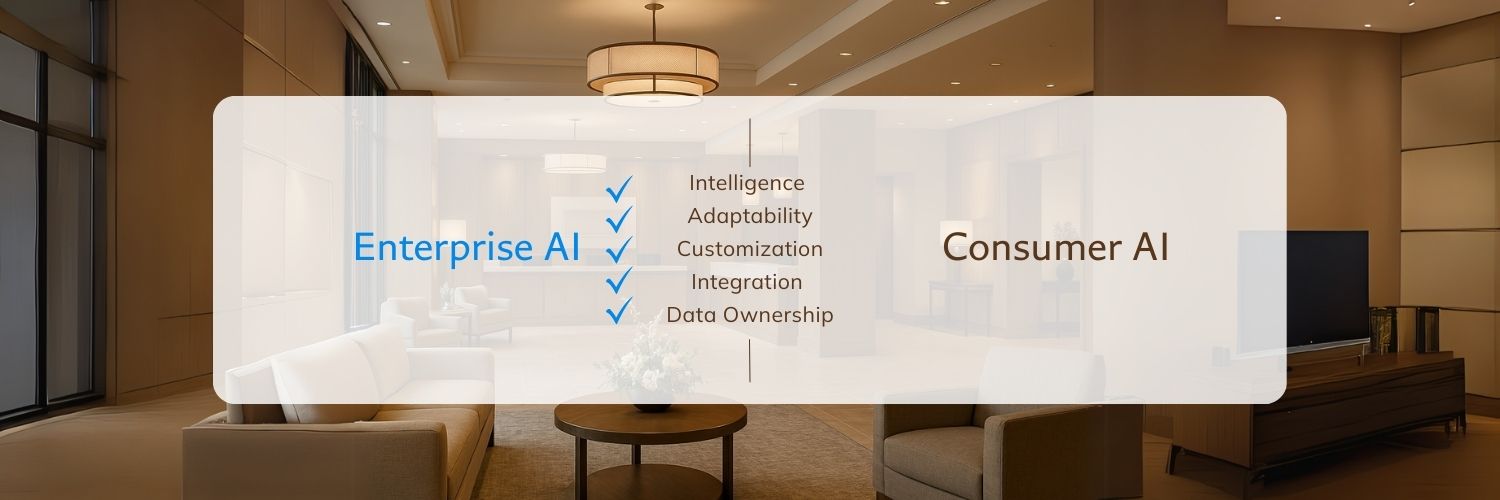
Want to Dive Deeper? Let’s Plan for Your Hotel, book a Demo with our experts!

